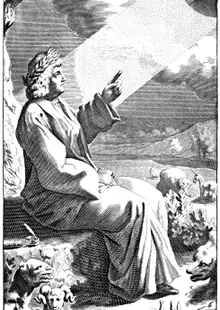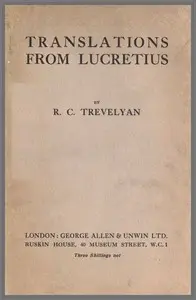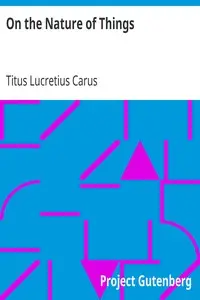
Titus Lucretius Carus
Titus Lucretius Carus was a Roman poet and philosopher. His only known work is the philosophical poem De rerum natura, a didactic work about the tenets and philosophy of Epicureanism, which usually is translated into English as On the Nature of Things—and somewhat less often as On the Nature of the Universe. Very little is known about Lucretius's life; the only certainty is that he was either a friend or client of Gaius Memmius, to whom the poem was addressed and dedicated. De rerum natura was a considerable influence on the Augustan poets, particularly Virgil and Horace. The work was almost lost during the Middle Ages, but was rediscovered in 1417 in a monastery in Germany by Poggio Bracciolini and it played an important role both in the development of atomism and the efforts of various figures of the Enlightenment era to construct a new Christian humanism.

Translations from Lucretius
Embark on an ancient quest to understand the universe, challenge the fear of death, and discover the secrets to happiness through reason and the building blocks of all matter.
By Titus Lucretius Carus

On the Nature of Things
In ancient Rome, a poet seeks truth in the natural world, daring to unravel the mysteries of existence through science and reason instead of gods and myths.
By Titus Lucretius Carus
